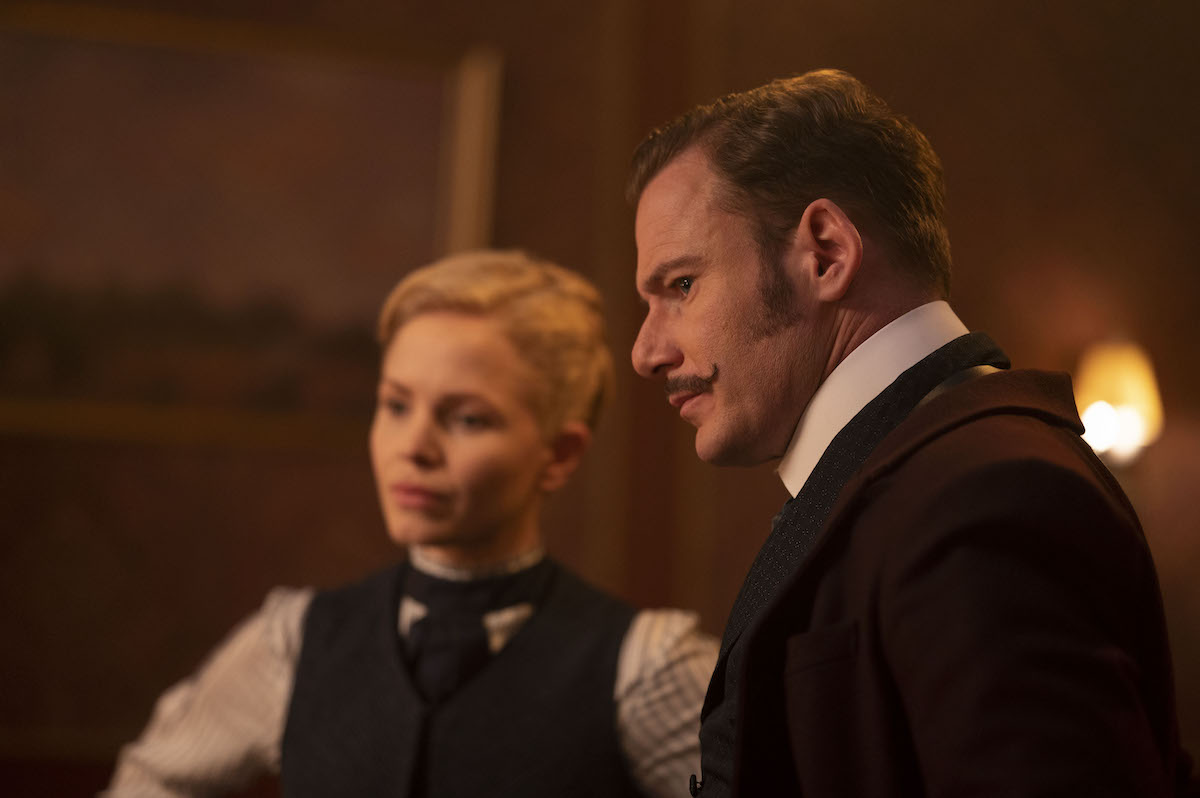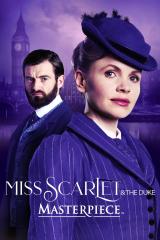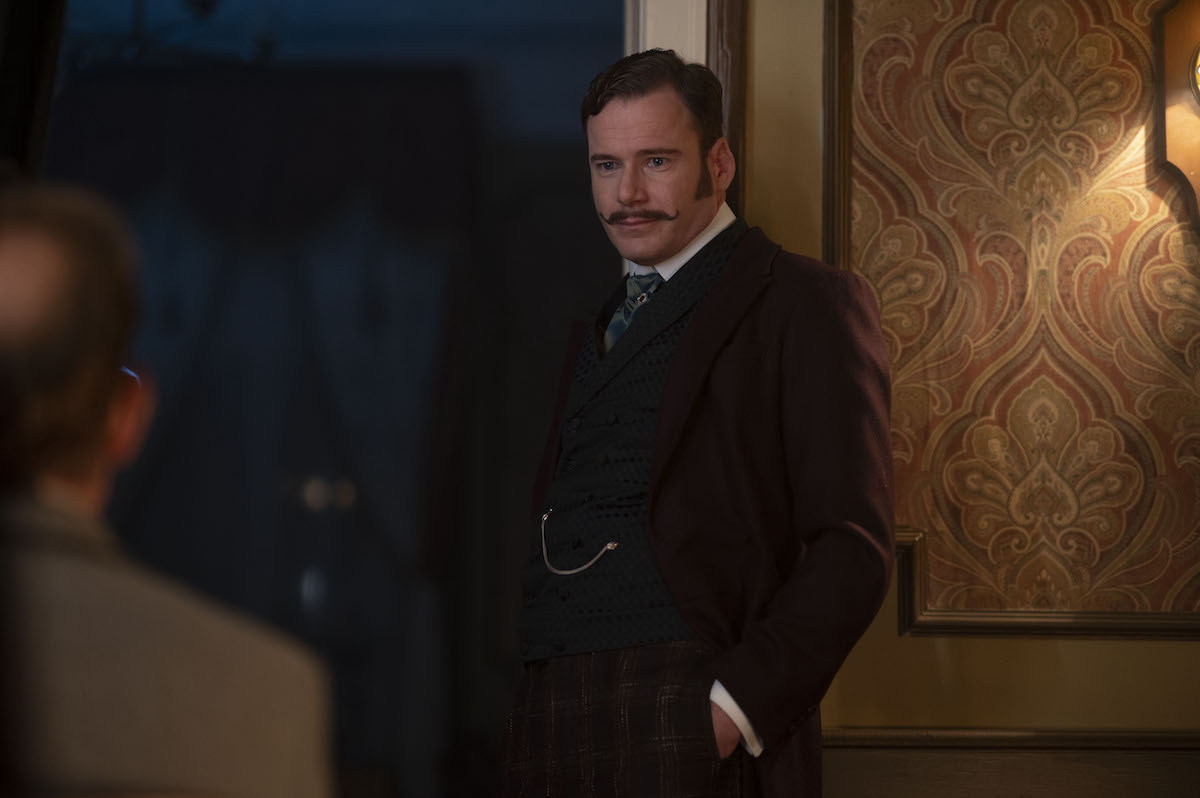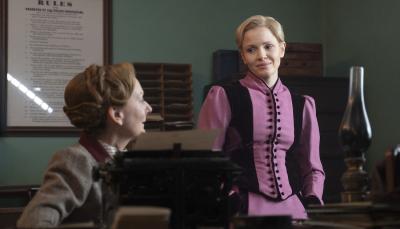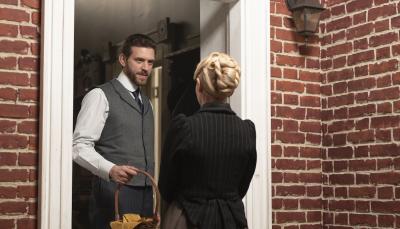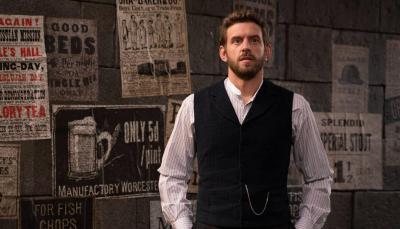'Miss Scarlet & the Duke': Eliza's Trip to "Hotel St. Marc" Is a Bust
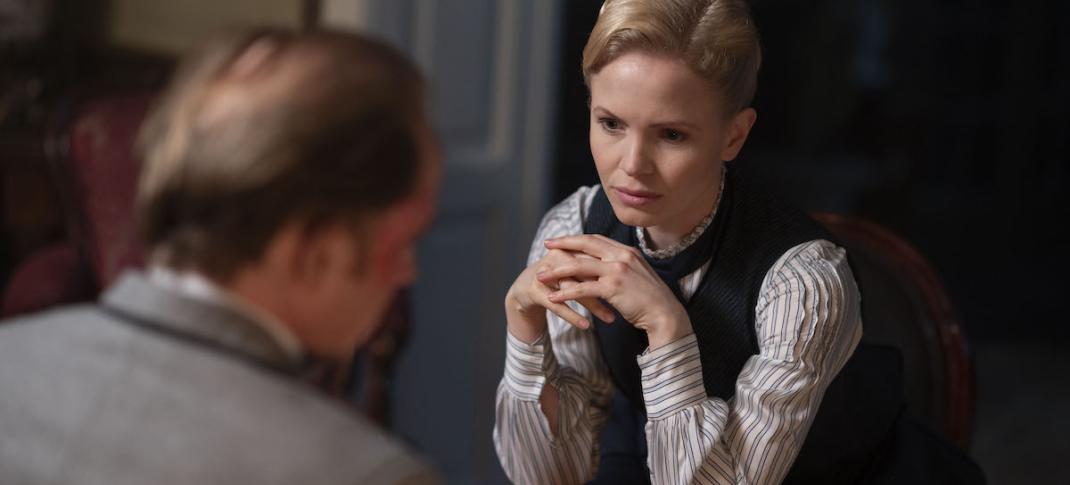
Kate Philips in "Miss Scarlet and the Duke" Season 3
Photo: Courtesy of Element 8 Entertainment and MASTERPIECE Photographer: Sergej Radovic
Miss Scarlet & the Duke giveth, and Miss Scarlet & the Duke taketh away. After dropping one of the series' best episodes in recent memory last week with "Arabella's," Season 3 inexplicably follows it up with "Hotel St. Marc," an hour that is...not terrible, necessarily, but not something viewers wanted. Having an hour that dealt with the series' foundational themes — the ways women trying to make it in a man's world are so often underestimated and belittled — and meaningful things to say about Eliza's emotional insecurities, following it up with an hour like "Hotel St. Marc" is baffling.
Rather than dig further into some of the rich emotional angles the series just unearthed, this one chooses to separate Eliza from her entire support system, send her abroad, and pair her in what is essentially a two-hander with one of the series' least interesting characters, investigator Patrick Nash. This isn't meant as an insult or slight toward Felix Scott, who does his best to make a character who often feels like the weakest sort of caricature appear as if he has actual layers.
But Miss Scarlet still can't decide the role Nash is meant to play on the show, making it really difficult to know how we, as the audience, are meant to feel about him.
Is he a genuine rival, meant to push Eliza to be her best self as a detective? Is he a job opportunity? (If she joins a more established detective practice, she might be taken more seriously.) Is he a potential love interest? (The pair does display a lot of that "you disgust me" chemistry that usually means they like each other more than either might admit underneath it all.) And, perhaps most importantly, does he even respect her as a detective in her own right? It's often impossible to tell, which may be the most frustrating thing.
On the one hand, Nash genuinely wants to work with Eliza. He's asked her to partner with him several times! But, he also seems to view her as a weird, almost quaint novelty — something that might be cute to have around the office as a sort of mascot, but not someone he needs to make any effort to treat as an equal. Their dynamic is baffling, and nothing about this episode provides anything that might be considered clarity regarding how we're meant to interpret their dynamic.
Don't get me wrong; I love bottle episodes or other unexpected hours framed in ways that shake up the established status quo of what I'm watching. The idea of an episode of Miss Scarlet in which the second half of the show's titular pair does not appear is, on paper, fascinating. There are so many ways a story like that could go and methods by which the duo's separation might be used to further explore their bond. Unfortunately, there's ultimately no real point to William's absence; it's barely even remarked upon, outside of Eliza beginning to write him a telegram at one point. [Insert the sound of a balloon deflating here.]
The hour's plot is decent enough: Eliza and Nash are tracking a famous conman named Charles Percival, who appears to have fled to France after raking in a big payday scamming at this year's Grand National. They end up at a tiny, very elite hotel called (what else?) the Hotel St. Marc, on the hunt for the same man. The problem is that they both think they've found him and have kidnapped their suspects, ostensibly holding each hostage until they can be shipped back to England and face justice.
As they two try to figure out which of their handcuffed targets is the real Charles Percival, they get to know one another a bit better as both Nash and Eliza attempt to demonstrate — and then one up one another — their understanding of people and their motivations. Their banter is quick and barbed, and it's evident that Scott and star Kate Phillips have a natural chemistry together; I can't quite figure out what it's supposed to be. Their scenes are often quite frustrating to watch, as it's unclear how we're meant to be reading most of their interactions.
But as both begin to question whether either of their prisoners is the man they're after, things get increasingly messy as more suspects and strange coincidences are introduced. It all becomes a pain to keep track of, and many of the biggest twists (oh, of course, that poor desk clerk Eliza keeps harassing has a more prominent role to play!) are telegraphed relatively early on.
As always, I appreciate that Miss Scarlet tries to come up with nontraditional and unconventional solutions to its mysteries. I don't think this one works very well, but I like that this famous con artist could never be caught because the authorities were never chasing just one person.
The execution of the group identity swap sort of falls apart if you think about it for more than just a couple of minutes, though, and it's deeply annoying that the only other woman we see onscreen for the entire episode is somehow a criminal mastermind capable of deception and murder, but also somehow only worthy of what amounts to three lines. That this show usually works so hard to add a feminist perspective to the stories it's telling is maybe what makes that particular twist so annoying, but whew. Did she even have an actual name?
Here's to going back to England next week.

